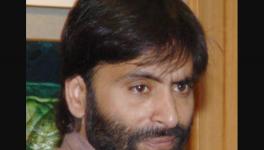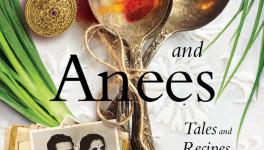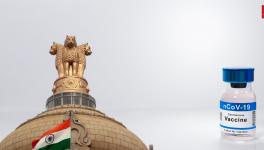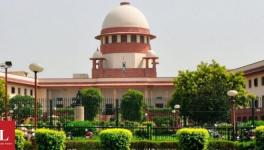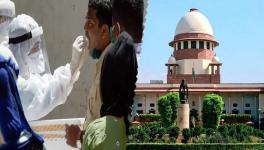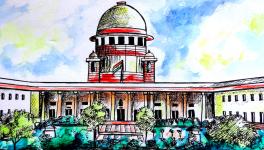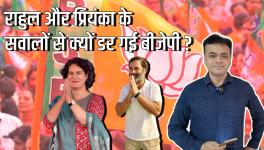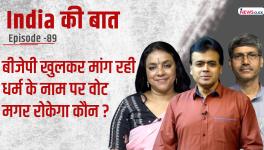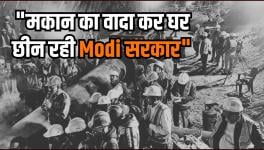Inter-Faith Marriage: One High Court, 2 Similar Cases, Different Verdicts
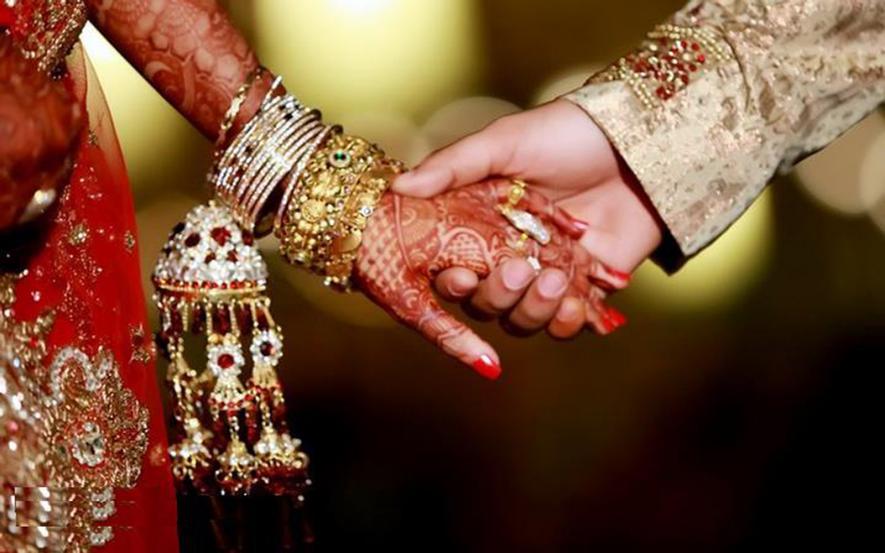
Image Courtesy: Kashmir Life
Bhopal: Taking heart from a recent judgement of Madhya Pradesh High Court where it came to the rescue of an inter-faith couple, Faisal Ali (23) a resident of Itarsi, decided to knock the HC's door and filed a habeas corpus petition hoping to be reunited with his girlfriend, Deeksha Umang Arya (19).
Deeksha, in a relationship with Faisal for the past four years, had eloped with him on January 7 after her parents did not consent to their marriage. But, soon the duo was brought to Itarsi police station following a missing complaint registered by Deeksha's father, Yogendar Arya. The two were produced before the sub-divisional magistrate (SDM) Madansingh Raghuvanshi at Narmadapuram, who set the duo free after Deeksha testified that she was keen on marrying Faisal of her own free will even though her parents opposed their union.
Ordering that the two be allowed to go, in a two-page order, SDM Raghuvanshi on February 3, stated: "Deeksha, who was missing as per her father's complaint was brought to the court by the police. She testified that she is first year student of B. Sc Nursing and eloped to Indore with Faisal on her own free will as her parents disapproved of their marriage owing to Faisal's faith. Since she is an adult and makes her own decisions related to life, Deeksha claims that Faisal has neither forced to change her faith nor allured her for marriage. Hence, she can live wherever she wants."
Relieved by the SDM's order, the two moved to Bhopal and began living there. Meanwhile, Faisal and Arya tried to marry under the provisions of Special Marriages Act 1954 in which they can practice their respective religions and beliefs, but they could not do so as they lacked money and support.
Deeksha is a first year student of B. Sc Nursing, while Faisal is an automobile mechanic and works in a workshop.
While the couple was busy exploring ways to marry in Bhopal, the Itarsi police station in-charge summoned Deeksha and allegedly compelled her to go to her parents. After Deeksha refused, the police reportedly forcefully dropped her at Nari Niketan of a Juvenile Court for counselling and shouted Faisal away. All this was done despite the SDM’s order.
When a helpless Faisal began exploring options to take Deeeksha out of the Nari Niketan, he came across a verdict of Jabalpur High Court of an inter-faith marriage. Hearing that the court had granted relief to the inter-faith couple, Faisal went to Jabalpur to find a suitable advocate for his case.
On January 28, 2022, a-single judge bench of justice Nandita Dubey, hearing the habeas corpus petition of Gulzar Khan, whose wife Arti Sahu was forcefully handed over to her parents by the Jabalpur police after they eloped and married in Mumbai, had granted the couple relief and immunity from the police.
In the two-page order, the court observed: "The petitioner and corpus both are major. No moral policing can be allowed in such matters where the two major persons are willing to stay together whether by way of marriage or in a live-in relationship, when the party to that arrangement is doing it willingly and not forced into it. The corpus before this court has clearly stated that she had married the petitioner and wants to stay with him. The Constitution gives a right to every major citizen of this country to live her or his life as per her or his own wishes."
Giving the couple immunity from police action, justice Nandita Dubey ordered: "State and the police authorities are directed to hand over the corpus to the petitioner and to see that the petitioner and the corpus reached their house safely. The police authorities are also directed to see that in future also the corpus and the petitioner are not threatened by the parents of the corpus."
Seeing a ray of hope to get Deeksha back, Faisal filed a 16-page habeas corpus petition at Jabalpur High Court for urgent hearing on February 10, with support from his counsellor Rizwan Khan.
"I have argued before the court that petitioner and corpus, both are adults as per the Indian constitution and they have liberty to choose their life partner irrespective of the caste, creed and religion. Besides, the SDM has allowed them to go after the girl recorded her statement in favour of Faisal refuting his father's claim. But 20 days later, the police who were forcefully trying to hand over the girl to her parents, sent her to Nari Niketan for counselling after she refused to go with parents," Khan told NewsClick the phone.
Referring to the Supreme Court's verdict in Safeen Jaha versus Ashokan case (Hadiya case) of 2018, Lata Singh v. State of Uttar Pradesh (2006) and a recent verdict of justice Nandita Dubey of Jabalpur High Court on interfaith couple, Khan pleaded for relief before the court.
But in its six-page interim verdict of February 22, the division bench of Justice MS Bhatti and Justice Sheel Nagu said that Faisal's ‘lover’ Deeksha Umang Arya was being held at a Nari Niketan in Betul against her will. She had testified twice via video conferencing and said she wanted to marry Faisal but was apprehensive that he may marry again.
The court asked Faisal to submit an affidavit, which he submitted on Monday (February 21), assuring the court that he would look after Deeksha, would get her education completed and marry her under the Special Marriages Act. Both of them will pursue their individual faiths, he said. Subsequently, the judges ordered a copy of the affidavit to be sent to the girl and asked that she be produced physically in court on Tuesday. The judges spoke with her and her parents in-camera, and she again expressed her desire to marry Faisal.
When Deeksha was adamant on marrying Faisal, the court allowed her to walk free, saying she is an adult and thus entitled to decide her marriage. But, the court advised the girl to “understand the priorities in life”.
“Academics has a very important role in the formative years. Thus, the corpus should first concentrate on completing her education so that she is assured of a source of livelihood to take care of her necessities and comforts without being dependent upon anyone, including her husband,” said the court in the interim verdict.
Advising Deeksha further, the court said: “Marriage is important but can very well be postponed and takes a backseat when pitched against the all-important concept of education. The corpus is expected to heed the advice to gain sufficient maturity in life to understand the difference between right and wrong."
The court was not satisfied with just advising Deeksha to study, so she can make decisions between right and wrong but also advised her father to be in touch with the daughter after the marriage.
Advising Deeksha's father Yogesh Arya, the court said: "Deeksha is an adult and thus entitled to decide her marriage. However, parents are equally concerned with her safety and security and their concern cannot be belittled when compared with the desire of the corpus to marry the petitioner. She has already attained the age of majority and, therefore, cannot be kept confined in Nari Niketan where she has been lodged for the last few days awaiting resolution of the dispute,” the judges said and ordered that she be released and allowed her to “exercise her right to personal liberty”.
The court further advised: “The father continues to be a father and, therefore, is equally entitled to ensure the safety of the daughter. Thus, this court expects that the father shall continue to keep in touch with her and provide her with the financial and emotional assistance she needs to the extent such assistance falls short and is unable to be provided by her spouse,” the court said.
A source who closely watched the court proceedings commented: "On the day of the verdict, it seems that the High Court has suddenly become the family court as the judges were concerned about the future of the B.Sc a girl who is pursuing B.Sc (Nursing) and wanted to marry with a Muslim person."
In the end, the court asked the counsellor under Juvenile Justice Act to escort the girl to wherever she wants to live and submit a fortnightly report of Deeksha’s well-being, especially on her academic career uninterruptedly or not by keeping an eye on her. The case has been kept pending awaiting a fortnightly report of the counsellor about the well-being of the corpus.
However, in a similar case of inter-faith marriage of Gulzar Khan versus state of Madhya Pradesh (2022), justice Nandia Dubey not only rescued to the couple from unending wait to unite with his wife on the ground of freedom of right to choice as guaranteed by the Constitution but also overruled the objection of the public prosecutor, who pleaded that the girl should be sent to Nari Niketan as her marriage is deemed null and void in the contravention of Section 3 of the Madhya Pradesh Freedom of Religion Act of 2021.
Section 3 of the Madhya Pradesh Freedom of Religion Act of 2021 provides that no person shall convert for the purpose of marriage and any conversion in contravention of this provision shall be deemed null and void.
In reply to the public prosecutor, the court had ordered, "Be that as it may, the petitioner and corpus both are major. No moral policing can be allowed in such matters where the two major persons are willing to stay together whether by way of marriage or in a live-in relationship, when the party to that arrangement is doing it willingly and not forced into it."
The Supreme Court, in the case of Lata Singh v. State of Uttar Pradesh (2006) has also given a landmark judgment over the right to marry. In the case, Justice Ashok Bhan and justice Markandey Katju, allowed the writ petition filed by a woman named Lata Singh to enforce her right, that is to marry a person of her choice with her own will. The Supreme Court gave a decision in her favour and ordered police protection for her as well.
The Right to marry a partner of one’s choice is a Right of choice enshrined in Article 21 of the Indian Constitution. Although it is not specifically mentioned in the Constitution, it has been inserted in Article 21 by the Supreme Court by the virtue of Article 32.
Get the latest reports & analysis with people's perspective on Protests, movements & deep analytical videos, discussions of the current affairs in your Telegram app. Subscribe to NewsClick's Telegram channel & get Real-Time updates on stories, as they get published on our website.









